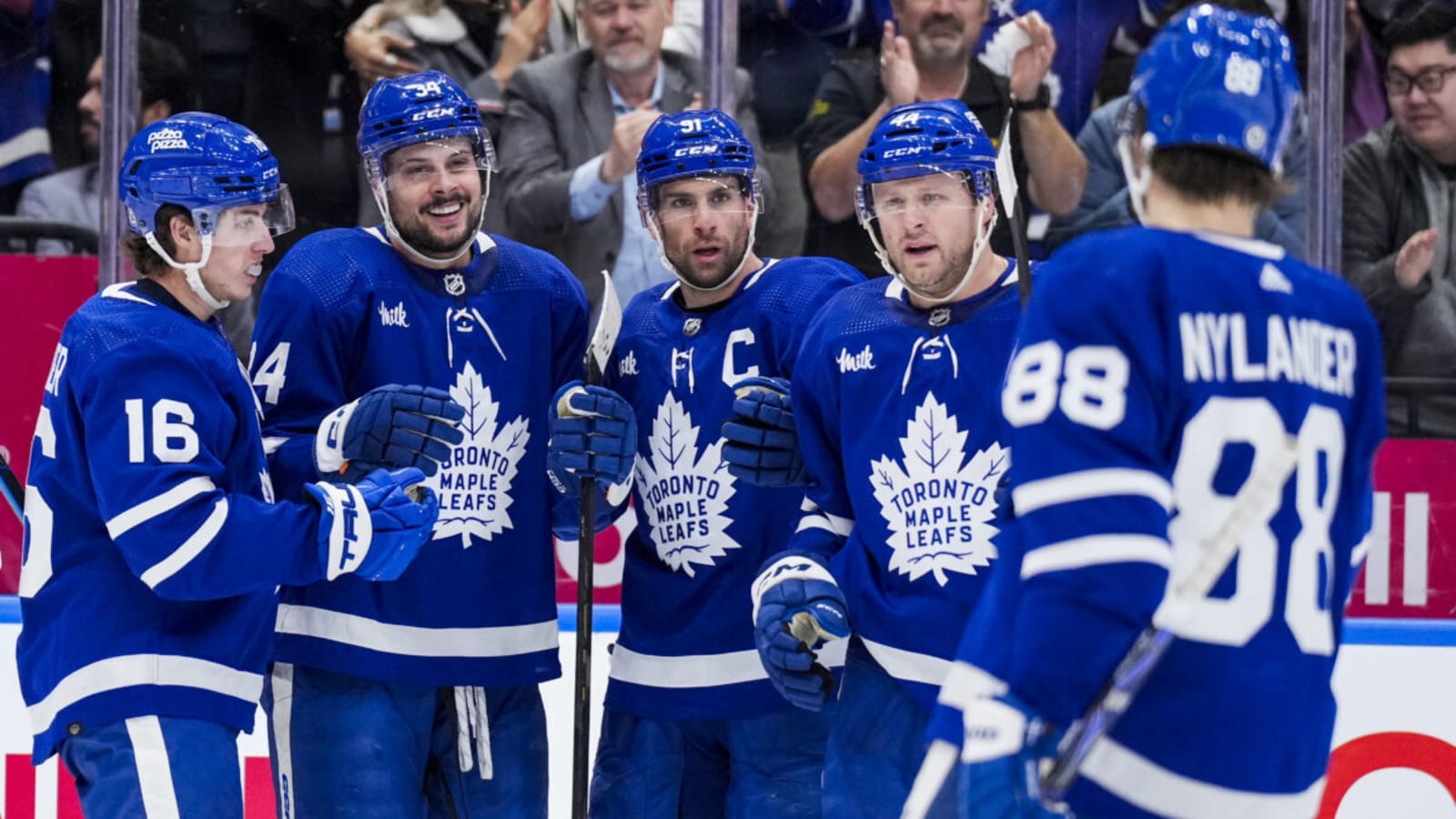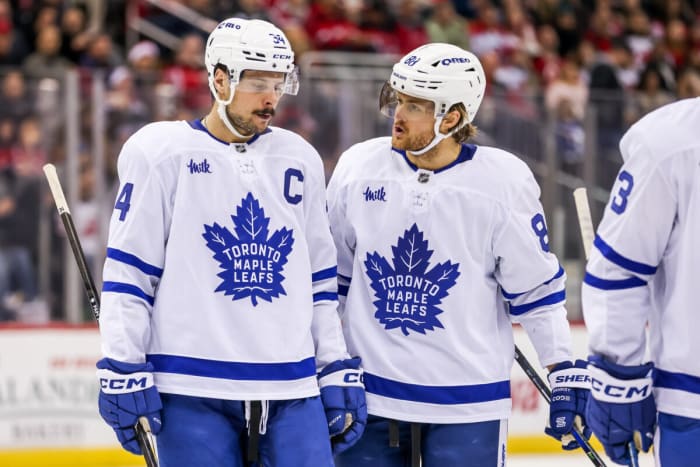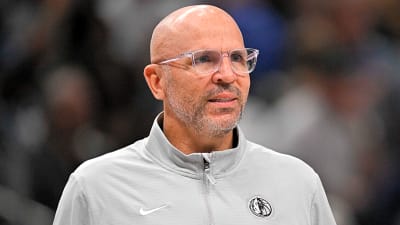
Where Toronto Maple Leafs fans are right now isn’t new. It’s a familiar emotional state rooted in centuries of shared human experience. When frustration runs high, and hope runs low, we start looking longingly toward something else—something different, something better.
That feeling has echoed throughout history. The phrase “the grass is greener on the other side” didn’t come from a hockey rink or a Twitter thread—it comes from ancient wisdom. The Roman poet Ovid once wrote in The Art of Love: “The harvest is always richer in another man’s field.” Centuries later, the proverb evolved again in 17th-century England: “The grass is always greener on the other side of the hedge.”
It’s a truth we keep circling back to—especially in moments like this for the Maple Leafs. Many fans are standing at that fence, peering across, wondering what might be waiting on the other side of change. They’re stuck between longing and loyalty—wanting anything different but fearing what that difference might cost.
The Maple Leafs’ Familiar Script and Growing Divide
For nearly a decade, the story’s been the same. Hope at the end of the regular season. Hurt in the playoffs. The cycle feels baked in, no matter how much talent is on the roster. After years of déjà vu, that emotional tug sets in: maybe something else would work better. Almost anything seems better than this.
Some fans now see change as the only rational option. Others believe the core five talent—Auston Matthews, Mitch Marner, William Nylander, John Tavares, Morgan Rielly—shouldn’t be easily discarded. It’s not just emotion versus logic. It’s emotion versus different logic, where both sides are drawing from the same set of facts and arriving at different conclusions.
That’s what makes this moment feel so raw. It’s not just about hockey anymore. It’s about belief systems colliding.
Mitch Marner: Symbol, Scapegoat, and Something In Between
Nowhere is that collision more evident than in the discourse around Mitch Marner. In the Game 7 collapse against the Florida Panthers in Round 2, the cameras caught Marner fuming, spitting in frustration, visibly angry with the situation (and his teammates, it seemed) after a breakdown that led to a goal. It was the most animated we’d seen him in months. He looked like a player who’d had enough. But just minutes later, he made a mistake of his own—a turnover under pressure, the same kind of play that had angered him.

That moment says so much about Marner: the competitiveness, emotion, passion, and contradiction. He wants it badly, but sometimes he seems trapped inside his role. Fans don’t question his skill. They question the tone, the timing, the feeling that, somehow, he sets himself just slightly apart from the rest. You don’t hear that from teammates, but fans see it—especially in moments like Game 7.
And maybe that’s the heart of the problem. Marner isn’t an easy fit for a fanbase starving for playoff results. He’s not a villain, but he’s become the lightning rod. Trading him would feel like an action, a declaration that things can’t go on like this. But keeping him feels like a bet on a formula that’s already failed more than once.
The Maple Leafs Aren’t Broken—But Are They Breaking?
They aren’t a bad team. If not for COVID-19, the team would have put up eight straight 100-point seasons. That’s rare air in the NHL. But greatness in April has become a curse in May, and with each early exit, belief doesn’t just erode—it starts to calcify into doubt.
There’s a creeping sense of stalling out. Not collapse, exactly—but exhaustion. The core players are aging into their primes, not toward them. The prospect pipeline looks thin. And fans can feel the breeze from the open window starting to close.

That adds pressure to everything. Not just to Marner’s future but to the decisions around him. The fear isn’t only that change might not help—it’s that doing nothing might be worse.
The True Cost of Change for the Maple Leafs
“Shake it up” is a tempting rally cry. But change comes at a cost. If Marner moves, you lose one of the most creative wingers in the game. Keep him, and you risk another year lost from the prime of Matthews and Nylander.
No move is clean. Every decision has a downside. That makes this moment difficult for fans—there’s no fix-all trade or guaranteed reset button. Every choice feels like a risk, and every option carries regret baked in.
Hockey, at its core, is a game of mistakes. Every player brings both brilliance and error to the ice. What separates the great from the good isn’t perfection—how they recover, how often their highs outweigh their lows. And few players in Toronto embody that duality more than Marner. He dazzles. He frustrates. He creates plays no one else sees and sometimes tries plays no one else would dare. When it works, it’s breathtaking. When it doesn’t, it’s maddening. He’s not just a player; he’s a lightning rod for the emotional swings of an entire fanbase.

In that sense, Marner isn’t the problem—he’s the prism. Through him, fans see everything this era has come to represent: promise and pain, hope and heartbreak, talent and trust that never quite translated when it mattered most. This moment in the team’s path isn’t just about tweaking the power play or making the cap math work. It’s about belief—whether the players still believe in each other and whether the fans still believe in them.
Maple Leafs Fans are Standing at the Fence, Looking Across
What’s happening in Toronto isn’t just a sports story. It’s a human story. A team with elite talent continues to fall short. The structure around it—emotionally, financially, philosophically—feels increasingly unstable. And the fanbase, worn down by a decade of near-misses, stands at the edge, peering toward the unknown.
There’s no doubt the harvest looks richer in another man’s field. But maybe the more complicated truth is this: sometimes it still feels easier to walk across and find out even if it isn’t.
More must-reads:
- NHL mock draft 2025: Projecting the first 10 picks
- NHL should shorten regular season, not extend it
- The 'Most goals in a Stanley Cup Playoffs' quiz
Breaking News
Trending News
Customize Your Newsletter
 +
+
Get the latest news and rumors, customized to your favorite sports and teams. Emailed daily. Always free!








